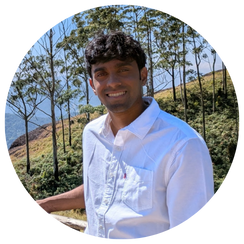The University of Chicago’s Climate Systems Engineering initiative (CSEi) is proud to welcome its inaugural cohort of CSEi Research Fellows as part of the CSEi Research Fellows Program. The 2025–2027 cohort brings together six leading early-career researchers from diverse fields to explore and evaluate climate interventions aimed at reducing the risks of a warming planet.
“I am thrilled to welcome this intellectually diverse cohort of postdoctoral researchers to CSEi,” said Daivd Keith, CSEi Faculty Director. “They will dramatically accelerate work on the science and public policy of climate systems engineering across the campus, and I hope they will go on to shape the development of the field, which must be defined more by their generation than by mine.
The CSEi Research Fellows Program aims to develop the next generation of research leaders who will shape the future of climate systems engineering for the benefit of people and the planet.
The Research Fellows, also known as Postdoctoral Researchers at the Rank of Research Associate, will collaborate with faculty and researchers across CSEi and the University of Chicago on their own independent projects to advance the study of climate systems engineering, focusing on the initiative’s three focus areas: open-systems carbon removal, sunlight reflection methods (SRM), and interventions to prevent glacial melting.
Applications are now open for the 2026-2028 cohort of CSEi Research Fellows. Interested candidates can apply now through November 18, 2025, at 11:59 p.m. ET. Further details, including application instructions and eligibility requirements, are available on the CSEi website.
In addition, CSEi also welcomes its first group of Postdoctoral Scholars, who are pursuing specific, CSEi-supported projects and contributing to the initiative’s interdisciplinary research culture. CSEi is currently recruiting postdoctoral scholars to work on glacial systems engineering and AI weather forecasting. Keep an eye on the CSEi website for forthcoming opportunities to work with leading UChicago faculty on cutting-edge research projects.
Together, this group of Research Fellows and Postdoctoral Scholars reflect the growth of CSEi and its commitment to building a vibrant community of researchers dedicated to tackling the most pressing challenges and questions related to climate systems engineering.
View all CSEi Researchers and Postdoctoral Scholars on the CSEi website.
_____________
2025-2027 Cohort of CSEi Research Fellows
 Ann Marie Hulver explores the impacts of ocean alkalinity enhancement on coral reefs, mentored by Professor Dakota McCoy in the Department of Ecology and Evolution. She holds a PhD in Earth Science from The Ohio State University and has previously helped create and test new technologies for coral reef restoration and conservation.
Ann Marie Hulver explores the impacts of ocean alkalinity enhancement on coral reefs, mentored by Professor Dakota McCoy in the Department of Ecology and Evolution. She holds a PhD in Earth Science from The Ohio State University and has previously helped create and test new technologies for coral reef restoration and conservation.
 Arthur Obst studies the ethical and philosophical dimensions of climate systems engineering. He is mentored by Professor Sarah Fredericks and draws on his background in environmental philosophy and climate justice. He holds a PhD in Philosophy from the University of Washington and was previously a postdoctoral associate for Princeton’s Climate Futures Initiative.
Arthur Obst studies the ethical and philosophical dimensions of climate systems engineering. He is mentored by Professor Sarah Fredericks and draws on his background in environmental philosophy and climate justice. He holds a PhD in Philosophy from the University of Washington and was previously a postdoctoral associate for Princeton’s Climate Futures Initiative.
 Sugata (Jonty) Paul builds experimental systems for climate interventions at CSEi. He is mentored by Professor Mingyi Wang on aerosol microphysics for SRM and by Professor B. B. Cael on open-systems carbon removal approaches, such as ocean alkalinity enhancement. He holds a PhD and MS in Physics from the University of Chicago.
Sugata (Jonty) Paul builds experimental systems for climate interventions at CSEi. He is mentored by Professor Mingyi Wang on aerosol microphysics for SRM and by Professor B. B. Cael on open-systems carbon removal approaches, such as ocean alkalinity enhancement. He holds a PhD and MS in Physics from the University of Chicago.
 John Tracey investigates the effects of ocean alkalinity enhancement on marine ecosystems and is mentored by Professor B. B. Cael. He holds a PhD in Geosciences from Princeton University and has previously worked in science policy and innovation consulting.
John Tracey investigates the effects of ocean alkalinity enhancement on marine ecosystems and is mentored by Professor B. B. Cael. He holds a PhD in Geosciences from Princeton University and has previously worked in science policy and innovation consulting.
 Jessica Wan develops modeling tools to assess how climate engineering proposals might reduce climate change impacts. Mentored by Professors Pedram Hassanzadeh and David Keith, her research combines interdisciplinary analysis frameworks and modeling tools that range from global climate models to AI emulators. She holds a PhD in Earth Sciences from Scripps Institution of Oceanography at UC San Diego.
Jessica Wan develops modeling tools to assess how climate engineering proposals might reduce climate change impacts. Mentored by Professors Pedram Hassanzadeh and David Keith, her research combines interdisciplinary analysis frameworks and modeling tools that range from global climate models to AI emulators. She holds a PhD in Earth Sciences from Scripps Institution of Oceanography at UC San Diego.
 Pengcheng Zhang researches the physical mechanisms that govern climate variability and predictability and is mentored by Professors Tiffany Shaw and Da Yang. He holds a PhD in Oceanography from the Scripps Institution of Oceanography at UC San Diego.
Pengcheng Zhang researches the physical mechanisms that govern climate variability and predictability and is mentored by Professors Tiffany Shaw and Da Yang. He holds a PhD in Oceanography from the Scripps Institution of Oceanography at UC San Diego.


